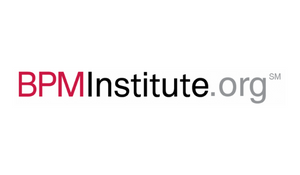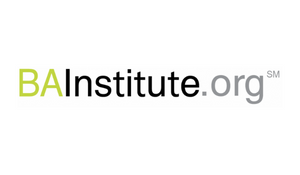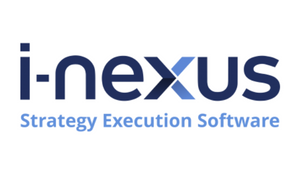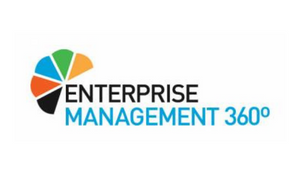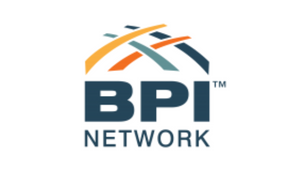

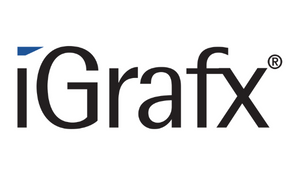
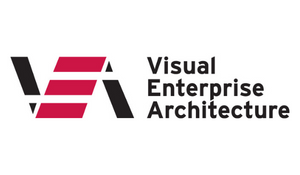
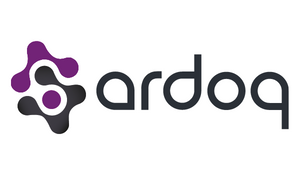

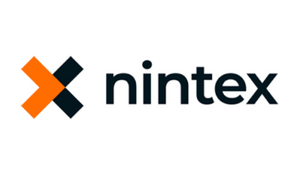
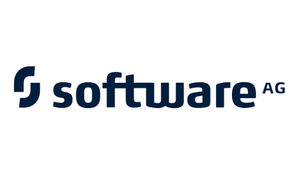

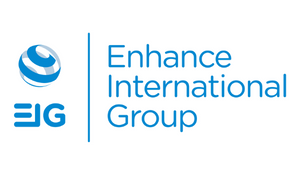
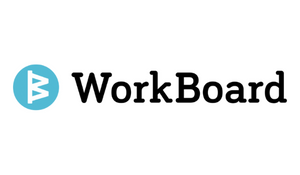
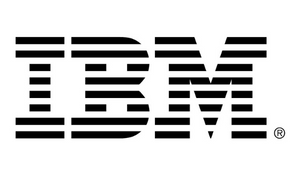


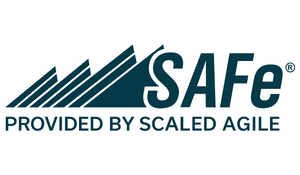





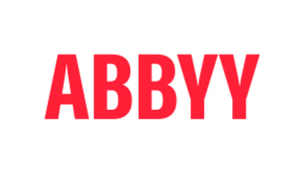








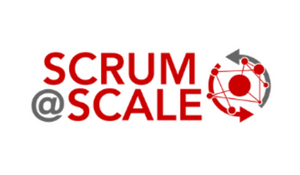

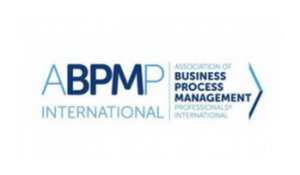
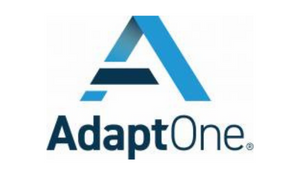


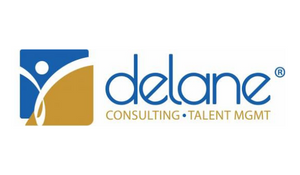

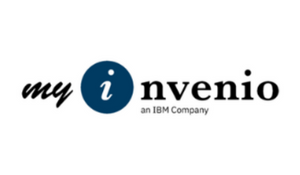

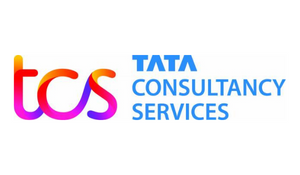
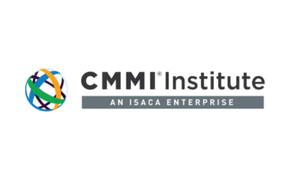
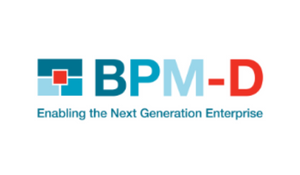

Courtesy of Smart Telecom's Lumu Joshua Melchizedek, below is a transcript of his speaking session on 'African Business and their approach to IT and cloud based technologies' to Build a Thriving Enterprise that took place at BTOES IT Infrastructure & Cloud Strategies Virtual Conference.


Session Information:
Session Transcript:
Joshua is the head of the IT infrastructure department and telecom at the Smart Telecom in, And he's going to share his journey with us.
He's a professional leader having a Master's degree in business administration and focus on information systems from Kim Moneyball University. He also holds a Bachelor's of Science in Computer Science.
He started his career as a microfinance and as an IT support officer. You're working to other organizations and has also been involving several IT projects, both on a small and large scale in Africa.
He is currently heading.
The IT and Infrastructure Department is Smart Telecom Buganda for the past three years managing the Infrastructure of and Telecom working on several projects there.
He has acquired a vast knowledge and telecommunications, marceau in GMS, UMTS, LTE, and telecommunication operations, both right technical and managerial point of view. Josh, it's a pleasure to have you with us. We have a global audience here, and it's truly unique to have a perspective and an insightful perspective from a leader like you directly from Uganda. So thank you for sharing your journey with us.
You're welcome, sir. Yeah.
Yeah, good.
Here, it's evening, and I know it's morning that side, and I in the UK. I think it's around known all afternoon Good evening, everyone, mister Peres.
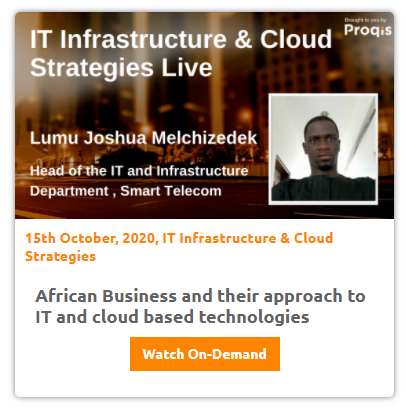 Jesse, as already, has already presented my My CV, my Who I Am, has already Talked a brief background on me.
Jesse, as already, has already presented my My CV, my Who I Am, has already Talked a brief background on me.
For status.
Hmm.
Let me talk about.
African businesses and their approach to the IT and Cloud best technologies.
Wow.
This is my background.
Information technology industry is a mixture in terms of advancement, the several sectors they have, several text semiotics has advanced, and others lag way behind forest as a telecommunication sector here.
It is way advanced. Most of the organic, most of the telecom companies, or four G, and even planning gaucho or five G.
However, other sectors like information system sector little bit, especially its information system sector and other several IT sectors, like information security, actually lagged behind.
Yeah, cloud, Cloud technologies have an interesting trend in Africa.
Statistics show that a steady growth in technology.
There's a steady growth in the technology. It's a lot of challenges.
Yeah, a lot of challenges. It needs growth.
Yeah, there are countries like Nigeria, Kenya, Egypt, are the leaders in adopting cloud based technologies.
And that is the slope peak in other countries. Like, for example, in my country, Uganda and several other countries surrounding in the sub-saharan Africa, they, the approach to Cloud based technologies is quite low.
However, the telecommunication sector it is so fast that as in the developing the ... by five G phones, telecoms up innovated, new business, new ideas, new services and telephones. And and it is growing.
 It is quite amazing that, however, though there's been a slope. It is actually a real slow peak with, with regards to cloud based technologies, however much it's developing.
It is quite amazing that, however, though there's been a slope. It is actually a real slow peak with, with regards to cloud based technologies, however much it's developing.
Yeah, um, Below are some of my factors leading to the current state of IT and infrastructure.
The situation in an in Africa.
The situation in Africa, leading to the current state of IT cloud infrastructure.
First and foremost, I would like to point out from the perspective of information systems, in most parts of Africa, uh, the businesses use decentralized systems, Decentralized systems, too, to run their businesses. And.
And, and an inflammation says, OK, while businesses around the world, an Africa aware of information system, I way of the of information systems, and softwares system software to help businesses acquire information and pave way for businesses to blossom in Africa is not the case.
It's only in a few countries like Egypt, South Africa, Nigeria where the power of information systems and system software is actually, it's actually acknowledged unknown.
So, there is a need, these, a lack of, ah, there's a lack of these lack of awareness with regards to information systems. For example, in my country.
For example, in my country, um, hmm, The most popular software is used in business management, QuickBooks and tally.
For most businesses, most SMEs use QuickBooks and Tally two to run their businesses, which is we get there, which is, to me, it is more of accounting.
Yet, I believe they are more softwares. Sub can provide more softwares that do supply chain management.
Management, information systems, consumer relationship management, CRMs, SEMs, and so many other Information system software's but in Africa does. Most of the software has been unheard of in the business environment here. So there is ...
that huge gap ERP is the only only big organizations Very like the telecoms and the big telecoms.
A few 1234 organizations accountable your fingertips That is ... all MIS software's totally in.
It is like green Fields like in green.
Grinned sector in the African continent, however, in countries like South Africa, Egypt, Nigeria and a few organizations in Kenya and so on.
Actually do have proper we do acknowledge and know the use of information systems and systems softwares.
However, there is a big potential in it.
There's a big potential for growth in the information systems in Africa.
This is because ah business is business is our way of the competencies.
I personally in the telecom we do have the ISP section and we handle businesses especially SMEs and when you win win-win, when you discuss, We did when we find meetings and we discussing about the situation, how we can serve these clients better.
We tend to realize that the find challenge is in the way they run the way they operate that was in competencies.
That they find.
And To me it's ground.
It's it's it's it's ground its ground its ground for them to adopt.
If if I if they can be a sensitization of Information Systems System softwares, that would be a great deal.
It will help African businesses grow and create market for the full, full, full, full system software.
If you increase the assistance of your market, actually, and I'm create it. Create a development in African businesses.
Yeah.
The situation of the second point, I wanted to the point about with regards to factors leading to the state of IT: infrastructure and Cloud, my second, my second, my second point, is the situation with regards to infrastructure.
and develop infrastructure in developing countries.
For status infrastructure, in terms of network facilities, Africa is doing well when it comes to network facilities.
For example, in my country, Uganda, the government itself, is laying its own Internet Fiber cable throughout the country.
It's amazing, The government has its own fiber lines. It's trying to join all its ..., the universities, the government, the government, the government, the government, the government, state government, the government offices around, the, around the country with fiber lines. And, they are creating. Also, I think, there's a data center for it.
These are the, that's number one, just yet, also, the private sector's, the private ISPs, Internet Service providers, like, like my company I work for.
We also, also laying fiber cable will also providing Internet in order, You know, why Mark's point to Boeing. Name it on fiber lines. And we also still laying fiber link, internet infrastructure and trying to spread the internet all over the country. As in, to me, and Uganda is not the only case. When you go to Kenya, some storytelling, Fireballs, when you go to Rhonda. It is amazing.
 Rhonda, I think they are trying to spread the whole country with.
Rhonda, I think they are trying to spread the whole country with.
when we went with Fiber Lines.
We are trying to create, ah, point of connections all over, POCs all over.
The country, as you remember, it's a small country, however.
And, also, it's still in the network for network facilitation, The telecom boom has enhanced facilitation.
So, on average, almost every adult, African, every adult, African does have a mobile phone, It's amazing. Every adult African almost has a mobile phone, and a smartphone for that C Of course, when you go into villages, when you leave the town areas, the technology change tends to change from four G, two G, smartphones to two G. But at least everyone, almost everyone, every village, it's very hot. There is network, and people have mobile phones. That's 1 1, 1 of the most amazing things.
We, the mobile phone with a mobile phone, with a mobile phone situation, the boom in the telecommunications sector has led to a lot of new innovations, new services, for example, in our country. And in the region of East Africa, this is what we call mobile money.
This kind of this kind of this kind of venture has evolved by checking bunks. It's making bunks rethink the way they walk seriously.
For, for instance, people no longer want to keep their money in the banks. People would rather have the money on the mobile money account. Knowing that, my money's on my phone. My mother in the village needs, needs help.
I'll just send it on my mother's number and the mother will receive it instantly and go to a checkpoint and withdraw the money that's taxed that that's the New Business Venture in Uganda.
It's taken over and it's a new way of managing, of, managing, of, managing, of, managing, of managing, managing money. So it is making bunks we think, like, seriously.
Um.
Then.
If I'm ..., if I am to proceed infrastructure, in terms of data centers and IT facilities, when I'm, when you're, when you, when it comes to data centers, especially, they are very key in cloud in Cloud business, because from the data centers, that's where information is kept. The systems are kept on all of that.
Africa, We still lag behind.
It's not just on something.
It's not something good, but we still lagged behind a very few countries, like South Africa, Nigeria, and Kenya, which serious they're having to go on on the investment in IT infrastructure, Especially for cloud developer, especially for cloud technologies.
It's quite interesting.
However, the other countries, It, It's not that they are not interested.
It's not that these, they don't, doesn't seem to be a reason as to why they should in the way they operate.
There seems to be reasons as to why these African countries during heading into that venture. So these luck that they are low enough that it's not enough data centers. And hence, other ventures, like a cloud, cloud, cloud, cloud technologies, have this like blue.
In other countries, countries like South Africa, Nigeria, Kenya, Egypt, I think, even Ghana.
I'm not quite sure about the three M, very few of them. They are putting up IT infrastructure, especially for Cloud.
However, meanwhile, Telekom's have data centers.
Almost most telecoms in Africa have data centers, but they are reluctant to even expand their data centers for extra IT services, only if you are doing it. I can give an example.
Several companies in several companies, several organizations we serve, tend to come and ask if we can host the services in our data center, so that we can easily manage and reduces costs on them.
So that's one of the challenges we have.
Then.
Cloud technologies.
Supposed to be on the African continent, Cloud technology on the African continent.
Cloud technologies, cloud, IOT cloud services, Increasing that.
The increasing day by day people are using cloud services and people, more businesses are getting on the wagon to use Cloud Services because of its a numinous reduction of costs.
When on buying IT infrastructure and operating you. Most of the times, when you have cloud side is, I don't think you need.
a lot of IT operators, you need very few people who do IT IT business IT operations.
So there is, there is a growth.
But yet the issues, the issues that need to be addressed 42 to blossom, the issues that need to be addressed which blossom.
Yeah.
one of the questions we could ask that all, especially African businesses, people in Africa, African businessmen, asked themselves, Why cloud? What does Cloud? OK, you can explain Cloud to them, but like Cloud Shuteye, really venture into Cloud business.
Um.
And to me, this is it as long as sectors like the information systems sector, and, and Ann, if only system software, as long as the system software business sector, we have sector and information systems sector, still lagged behind.
From from a technical point of view, all it does not it has not been received well by the African business businesses.
Then, in my perception, the way I see things, there's likely to be a flattening in the cuff of the growth of cloud businesses.
Because, most of the times, when you think about it is systems. Softwares are the ones that we're going to install in the cloud, to avoid the management.
But, remember, as I told you in my earlier point to that information is information systems and system software venture.
All businesses don't perceive that part of information systems quite well.
Yeah. So, it is, it is being a challenge.
So, if that sector is not well addressed, if, organizations, like sap, Microsoft, Dynamics, AWS, Amazon, and the rest do not come, and Kit is strategy, I believe, it, to be. It can be, like, a 5 to 6 year strategy.
Of showing, African businesses the power information systems and systems software's how they reduce the cost of operation. How they can help you study your clients and serve them better. How will the how information systems, can help you go further?
.png?width=742&name=Screenshot%20(4).png) Then, we're going to have a serious challenge.
Then, we're going to have a serious challenge.
Cloud then to me, I believe, cloud cloud, cloud, cloud technology would just remaining students books, they would just read about a cloud technology. This is the kind of technology, OK, Yeah, and that is it.
Do you just read about it? And end of story they'll want to experience it.
They won't know what it is, because businesses won't have adopted to it.
Yeah, and And in my view, I believe Cloud technologies is gold is a gold mine or once It needs to be Like the way when you're going to Mine gold ore mine any other mineral how you plan? How, you know, I'm supposed to dig here and get to the gold. I believe that's how cloud should be approached in Africa.
I believe, and I know it has the huge potential.
I believe all most businesses, when you win again, I, again, I'll say, we deal with companies and we provide Internet services, besides telecom services, to some organizations, a couple of organizations, actually, to be precise.
If, if you do not, if we just, like, for example, only our, our if function, set it down to the niche of people would provide with Internet.
If we can help them, can help them understand information systems at the information systems, Show them how to beta, How to better run this permission systems on Cloud, so that you don't need a lot of IT, guys.
It's only because, what's interesting, most of our people we will work with, most of them, do not, do not at all.
Have any, Do you not at all, have any IT people?
So, when they have Internet challenges, they call us the AS, they call the ISP section of our company, and?
They have to run there and do IT services for them.
However, even then, because, personally, sometimes, I've got to visit just to make a case study, I'm going with the team, the ISP Team, to go on just to look through to see what happens when they go to a client splits, What happens, just two?
To know what evaporation, then I realized it come to my realization.
These people will have Internet, they have a decentralized system naphtali there.
They are using Microsoft Excel to, to run their store store where, that's how it is, but if they have an ERP, or supply chain management system, or an MIS undo, it is very easy to convince them to use Cloud. I'm talking about only our niche, only our clients.
Those are like 500, 500 plus glands.
You can you can imagine, I believe like half can go to cloud that's a huge number of clients and cloud.
So it is a goal. I believe it is a good, and it's a good.
Oh, that you, of course, you need. You need to come and plan sensitize businesses. Show them how Cloud can help their businesses and trust me they'll adopt. Because every day when you interact with the clients, interact with businesses and business owners. They tell you, have spent a lotta I spend a lot here how should they reduce costs? Yeah. I should have discussed some transport ..., hush hush. The eliminating the middleman. How should I? How should I understand my classmates? And there is that need.
Hmm.
How to best?
How to best, how can best assist businesses catch up with this quickly changing With this quickly changing technology technology world, um, for Stutters, one of the key is, this is, I think I've been saying the mode of operation in Africa.
African businesses operate in a way old, most of the businesses don't most of it. Because people do not know how to play. Is a need to sensitize African businessman.
An African businesses on how they should operate, you can have the project with the business. You lay out your projects, you plan your project, but this puzzle on the other side, there are no definite plan the business plan the project, don't plan your business. They don't know how to do that. They don't know how to do ... Curves, they do. They will do. Things is outdated festival.
It wastes time, and, and it does not promote advancement.
two, I've already talked about it, the, the awareness, African business are not aware of information systems and systems software, which, which, to me, is, to me, is, is the problem. It is. It is a problem that really needs to be addressed.
Yeah, then, the other point, I would point out, these lack of lack of policies to enhance cloud computing, African countries do not have legislative control, and governance, information, information technology, ah, intelligent property, information protection, that is known.
It is literally, for example, we've been having is a difference, for example.
Just a few weeks back.
MTN and air tail and simba's, asthma telecom were hacked into and 20 billion Ugandan shillings went missing.
But that is one, that is one thing that it is, is really hard to, to to to truck. And there's no way even the I went to, Assuming they've got the person who did, who did the hacking and what? No one is going to arrest him.
There's no law that incriminates him, OK, they might incriminate him for fraud.
Other laws don't. You might be in prison for one month, get out, but it causes a lot of damage, a lot of losses.
That is, approximately 400,000 US dollars.
Yeah. Then, of course, lack of instruction, infrastructure, furious dysfunction. Uganda.
Those are some of the key things that need to be addressed in order to help African businesses catch up and adopt to cloud technologies quickly.
 Um, must use technologies.
Um, must use technologies.
This is my, this is my final part of my slide.
The most used technologies are in most used cloud technologies, for example, sass's service as, uh, Software as a Service is one of the most used in, in Africa.
My options of AWS, Google, Microsoft, having Elite in this kind of technology forever.
The most thing they use ... as a cloud technology is backup.
Most organizations sit back up on Dropbox, Google Drive, Microsoft OneDrive, and old is sort of on all these other backup cloud softwares.
I also know they do file sharing where they, one document is used. It's used for management.
But, what about, as I said, softwares that run on cloud in Africa are very few and they used mainly by telecoms.
However, from experience on what I've seen, especially, when I was this spirit, I've worked in the telecom, especially last 2, 3 years.
I've seen deals in need of infrastructure as a service. That branch can grow quickly, because.
There are several businesses that have branches, and they would love to use a centralized system to manage all the branches.
Several businesses, For example, last year alone, 20 19, on or not on our management disk, received around five requests, 5 to seven requests of our clients, wanting two for us to host their systems.
Of course, our data centers, and are not designed for hosting systems, but doing, asking to host. And we are willing to part with the buying some infrastructure you can imagine.
So, if a structure as a service got those two Software as a service, infrastructure as a service, Those two, I believe, they are the, yeah, some of the cloud technologies that are going to.
Then I'm going to move quickly in Africa.
Yeah.
That is it. Thanks for the presentation, everyone.
Josh, thank you very much for sharing your insights about the opportunities and the challenges with IT infrastructure and Cloud and Cloud Strategists in Africa.
And the tell us a little bit more, I'm looking at the questions that have come in during our presentation, and I encourage the audience to continue to post your questions directly. So I'm monitoring those as we go along. But my question to, to you to start and, and that, it's a team, the theme that has emerged from some of the commentary that the audience has made.
Tell us a little bit more about your in your contacts with Smart Telekom and the role that you have in your organization.
How, how are things evolving when it comes to IT infrastructure and cloud, as you continue to grow the business in your organization?
OK, for instance, in my organization, one, um, there's growth in our organization, but for east. For example, we're trying to allow We just can't imagine just recently rolled in four G.
You're trying to out five G. But that's like in the next three years. Next 3, 4 years to supplant.
When it comes to IT infrastructure, we have a, we, we, we tend to project, we tend to project, we come up with a plan.
That, uh, this current infrastructure we have, for example, get outdated in this amount of time. So, we plan, we know that, by this time, we should be facing, this outage should be facing this in. We have that kind of way, now, with regards to cloud.
We've seen a need of cloud, of cloud of cloud, provide today to their clients.
I've been, especially in my last slide, so, we, we've been, we've been thinking, are we ready to proposition to management, to have a small session, to provide provision for clients who are willing to, for as to what's host their systems?
So, that is on the way, it's already been pipelines, And we are also thinking of, when we rollout on four G and five G, we're also thinking of some services to reduce costs.
Some services on the telecom sector, for example, some of our core network, quite network nodes.
Most of them are going to be hosted cloud wise, especially for G And, especially, in the five G, When you're running out five G. That is our plan won't reduce power consumption because power in Uganda is really expensive. Very expensive.
So, we have, we're, we're, we're laying down those plans strategically.
Of, course, There are those challenges that, uh, sometimes, acquiring this is very expensive vis-a-vis management.
So we were putting the planet in our midst, but that's what we're heading to.
Very good. And one other thing that has emerged and questions they have emerge has to do with infrastructure. And the, but before I go into that, I don't think the audience understand that the different places, different, different countries in Africa in which you're operating right now, And the end, of course, infrastructure, is not universal. In Africa, every country has its unique characteristics.
So, that was a little bit more about, is Mount as Mark Telecom. And the company you work for. A company work on building the infrastructure, like the towers and the things like that. Quite some more focused on the equipment side or networking side. So, let's start with that Tell us a little bit about the company itself. And what the focus is for the companies that infrastructure. Is it? Is it the network side, Is it equipment side. It's all of that. What does the company do in Africa and also, what countries are you operating on right now?
OK, the company I work for does Telekom.
We we're right now, in Burundi, and we're in Uganda, and we install infrastructure that we install telecom infrastructure there. We do not build our own towers.
 We will hire other organizations to build a thousand awesomely, put infrastructure there for, for cost reduction, mm for its, it is a manageable like that. because sometimes having so many so many towers, owning them, it's good. But sometimes meant the maintenance cost is high. So we we we would rather hire someone to run them for us and an undo, undo the management for us. Yes. We in Burundi, we and Rhonda, we enough against .... Those are the two countries.
We will hire other organizations to build a thousand awesomely, put infrastructure there for, for cost reduction, mm for its, it is a manageable like that. because sometimes having so many so many towers, owning them, it's good. But sometimes meant the maintenance cost is high. So we we we would rather hire someone to run them for us and an undo, undo the management for us. Yes. We in Burundi, we and Rhonda, we enough against .... Those are the two countries.
We're in mainly Rwanda Uganda for Dunstan Kojak stun, you were there?
Wow, yes, so that.
So in terms of the build-up and, and, And the infrastructure that you need to to grow the business, the telecom business, and the infrastructure for the telecom business.
How does power and power availability is impacting your business?
And I asked that question, because I have work personally directly with several African countries and utilities, specifically with Eskom, South Africa, on building power infrastructure, and there was no, and that affected tremendously. Of course, the telecom business. Because, without a reliable power infrastructure, it's very difficult to have a reliable telecom business. So, how are, how is power reliability in the countries that you're operating on right now?
Oh, to be honest, boys, a real challenge.
Power is a real, real challenge. We ought to have like, four power sources.
We hold of a generator, you'd have battery backup, you'd have the ordinary power to manage, to keep, to ensure you're running, and you're going to have spent a lot on.
A few will spin out of the budget management and the UPS Management, and the on everything, on the towers, on your data centers.
It is crazy.
It is one of the reasons as to why the Internet, some of the telecom services are still expensive. Yes, the growth is the people are getting onto the using services. But let's be honest, the LED expensive vis-a-vis, the European countries and countries as well.
Yes, there is a challenge, however, the government sub try to address, especially for my earnings for, for instance, in Uganda, the government has been trying to, to deal with that is build a couple of dams and all that, and we get, I believe, we get to see a change.
Very good, very good, That's a very good perspective. Because, I think, a part of our audience does not, may not understand the real challenges that, that you'll have to overcome to do, to do your telecom business. that, then, this challenges come from the power infrastructure now.
So, um, so on that, now, moving back to IT strategies and cloud.
Um, what? You talk during your presentation about the fact that most businesses have not really even start tapping on the full capabilities of cloud.
I mean, you know, Cloud Storage is one component of it, of this, and then you have migrations into cloud applications, and cloud processing, and things like that, but what you mention is that there's maybe a combination of the business leaders not being unaware. It may be the providers not really providing focused service to African businesses. So tell us a little bit more about that, which, which one do you think is the biggest component that is preventing cloud services to grow in the continent?
Do you believe that's mostly because of the business leaders, lack of awareness and mindset?
It is because they don't understand the value proposition, or maybe the value proposition is not attractive or even valid for African businesses and, and the other, or it is because there is no good communication and focus from those providers today. Tell us a little bit more about that. What do you think is going on there?
OK, one of the things, I'm one of the 1, 1 main thing I know is, the business men in the business been in Africa, Ignorant about cloud about, as I was talking about, mainly about information systems and systems software, because that's one of the things that can help us tap into cloud.
Right?
Yup.
Now, one of the challenges is that African businesses and business owners have no clue about, does business have no clue of any of that.
You get it.
So it is very hard to convince him that Hey was you migrate your systems to Cloud, is still using Italians are like I'm using Terry.
I'm good have no problem.
But he's still having challenges with managing his talk is still managing, but if he can introduce softwares or technologies that can help them run their businesses properly it is easy to convince the business money the businessman that hey you can get all this software on cloud.
And it's cheap.
So that lack of that ignorance or lack of knowledge about IOT technology information systems, technology, he's is creating a lag.
Because I don't think you've got to tell someone whose money money or running his books, this cloud technology, undo, undo, will understand you and the wheel.
And the wheel, who will run to you quickly, I'll be like, no, he wants, because it doesn't necessarily talking about what is cloud.
In Europe and in in Indian Diaspora, I know you, you have a lot of a lot of, for example, I would love to talk about sap.
Sapp provides business software, right?
Um, however, we have only two organizations in my country that runs up, only two and they are American companies.
You get it.
So the rest of the of the country is using, still it's decentralized.
If someone comes in a supply chain manager in an organization I know the software can walk, OK. How am I guess they take the businessman or not then they are willing to to to release them and are willing to invest.
Provided just going to take their business to the next level but they don't know what to invest in, they don't know what to do exactly.
That is the challenge, is that lack of that lack of knowledge about technology, especially from the business perspective.
Very good. And the, and the, Josh, if you look at foreign direct investment in Africa, and you may not be able to speak about Africa as a whole because Africa is a huge continent with many countries are very different setups. But, if you think about it, or Gando, which you are very familiar with, if you look at foreign direct investment in Uganda right? now, what do you see happening on the ground? Are you seeing foreign direct investment from North American companies, From European companies, from Asian companies, China, specifically what are you seeing in terms of foreign direct investment in Uganda?
For direct investment, in terms of tele of telecom infrastructure?
Can be. But, I'm thinking more broadly, perhaps, just what you're observing in the country, in terms of who the country's partnering with an Arab nation level to develop infrastructure around, you know, across the board, and in different sectors.
OK, China is taking the lead.
China is taking the lead.
Huawei supplies like most of the telecommunication companies with with with infrastructure and ZTE Simmonds.
Ericsson and Siemens in the beginning like 20 years ago, but all of a sudden the phase them out. And, I think Nokia Siemens is getting back on board a little bit.
But Huawei does the lead here in Uganda and even the handsets people use.
A Chinese company called Techno is leading an ideal.
They're the ones dispiriting most of the phones, most of the cell handset's. Why?
.png?width=742&name=Screenshot%20(4).png) Because that really, they are giving good quality funds at a very cheap price so to give our price. Yes. That is it.
Because that really, they are giving good quality funds at a very cheap price so to give our price. Yes. That is it.
Very good. Josh, our time is up, but I wanna, I wanna thank you very much, on behalf of our global audience, for your presentation. And one of the things I'm very proud of, is, because I know that you had lots of challenges to it, to make the presentation warrant for you. Taking the time out of your busy schedule and things that are happening there, in your company, in your, in your role. And, yes, but we think it's incredibly valuable to bring different perspectives to our global community, and Africa is a big part of that global community. And we appreciate your candor, your transparency in talking about the, both the challenges and the opportunities in the African continent when it comes to IT infrastructure and Cloud strategies. So, thank you very much, sir, for, for sharing that with us. Yes, Thank you very much, too.
All right. Thank you. OK, ladies and gentlemen. That's our perspective from directly from African leader, who is on the ground building infrastructure, and that for IT, and, as he mentioned, for, hopefully, future Cloud strategies. So, Josh, you can now toggle your camera off the goto Webinar interface. I'll briefly talk about the sessions there are coming up on the rest of our scheduled for today. The next session, we're going to focus on the view from the C suite, Key Success Factors for effective this transformation.
As seen from an executive perspective, and we have a phenomenal speaker on that Rears. Athar is the vice-president of Transformation Integration and Project Management Caesars Entertainment.
And he's going to be talking to us directly from Las Vegas, Nevada, to the world, about the haysville, from, as he works with the sea level leaders, his organization, and other organizations as well. After that, we're going to shift continents once more. And we're gonna head to India, where we have the senior director of S four S, AP, artificial intelligence, Raul, Laurie, who is going to be speaking to us about the challenges in realizing AI on the on the enterprise. And he's going to talk about the good, the bad and the ugly related to AI implementations for the enterprise and add the ... as a last session for our they were going to have the head of digital automation from MetLife eon O'Reilly. And Ian is going to talk about the interested in the digital workforce of the future. And the how do you how do you collaborate the with human and digital workers? And?
And there's very interesting presentations will literally go from across four different continents this morning, and we're very glad that our global audience is with us, and and the represented in those continents, as well. So thank you very much.
We'll see you back at the top of the hour OK, thank you.

-Oct-09-2020-08-03-15-46-AM.jpg?width=200&name=more%20(1)-Oct-09-2020-08-03-15-46-AM.jpg) Lumu Joshua Melchizedek,
Lumu Joshua Melchizedek,
Head of the IT and Infrastructure Department,
Smart Telecom.
Josh, is an IT and Telecom professional having a Master’s in Business Administration majoring in Information Systems from Sikkim Manipal University and he also holds a Bachelor’s of Science in Computer Science Degree. He started his currier in 2012 at a Microfinance as an IT support officer, worked in two other organizations and has also been involved in several IT projects both on a small and large scale.
He is currently Heading the IT and Infrastructure department in Smart Telecom Uganda. For the past three years managing the Infrastructure of a Telecom working on serval projects there, He has acquired vast knowledge in telecommunication more so on GSM, UMTS, LTE, telecommunication operations both from a technical and managerial point of view.

View our schedule of industry leading free to attend virtual conferences. Each a premier gathering of industry thought leaders and experts sharing key solutions to current challenges.
View Schedule of EventsWelcome to BTOES Insights, the content portal for Business Transformation & Operational Excellence opinions, reports & news.
-------------------------------------------------------
Search for anything
Insights from the most progressive thought leaders delivered to your inbox.
Insights from the world's foremost thought leaders delivered to your inbox.
Being a hero is all about creating value for others. Please invite up to 5 people in your network to attend this premier virtual conference, and they will receive an invitation to attend.
If it’s easier for you, please enter your email address below, and click the button, and we will send you the invitation email that you can forward to relevant people in your network.
View our schedule of industry leading free to attend virtual conferences. Each a premier gathering of industry thought leaders and experts sharing key solutions to current challenges.
View Schedule of EventsWatch On-Demand Recording - Access all sessions from progressive thought leaders free of charge from our industry leading virtual conferences.
Watch On-Demand Recordings For FreeDelivered by the industry's most progressive thought leaders from the world's top brands. Start learning today!
View All Courses NowThe premier Business Transformation & Operational Excellence Conference. Watch sessions on-demand for free. Use code: BFH1120
Watch On-DemandInsights from the most progressive thought leaders delivered to your inbox.
Insights from the world's foremost thought leaders delivered to your inbox.
Being a hero is all about creating value for others. Please invite up to 5 people in your network to also access our newsletter. They will receive an invitation and an option to subscribe.
If it’s easier for you, please enter your email address below, and click the button, and we will send you the invitation email that you can forward to relevant people in your network.
Courtesy of Nintex Pty's Paul Hsu, below is a transcript of his speaking session on 'Improve employee productivity during and post-COVID by ...
Read this article about HP, Best Achievement in Operational Excellence to deliver Digital Transformation, selected by the independent judging panel, ...
Read this article about BMO Financial Group, one of our finalists, in the category Best Achievement in Operational Excellence to deliver Digital ...
Read this article about Cisco, one of our finalists, in the category Best Achievement of Operational Excellence in Internet, Education, Media & ...


